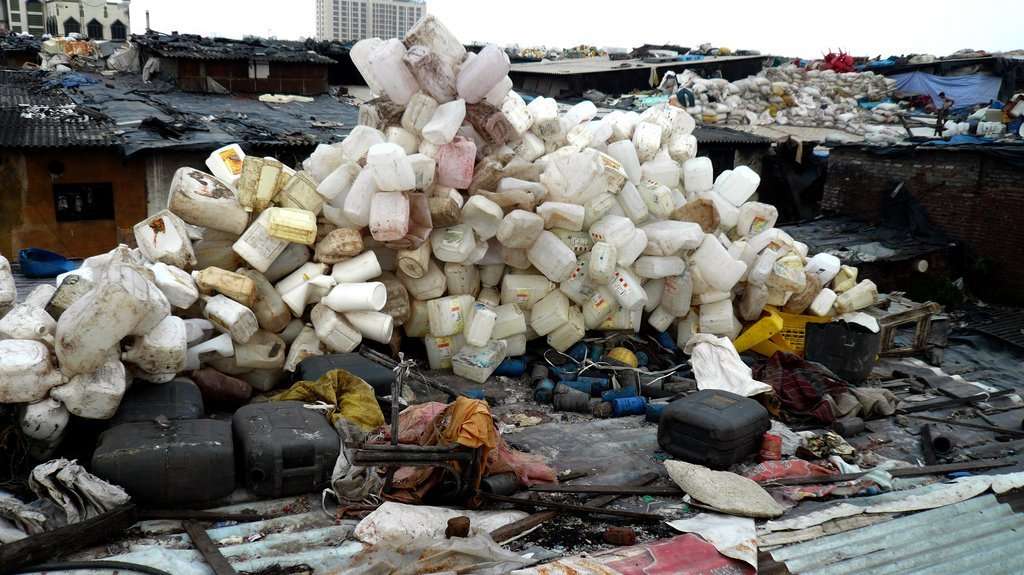First comes the leak, then comes the flood.
2018 will be remembered as the year the world waged war on plastic waste — and the revolution has just got serious.
India announced it will ban all single-use plastics by 2022 in the most important leap forward against plastic pollution to date.
Take Action: Call on Governments to Say 'No' to Single-Use Plastics
Prime Minister Modi delivered the bold plan on Tuesday, described by the Guardian as the “most ambitious” move yet against global plastic pollution.
India is the fastest-growing economy in the world, and home to 1.3 billion people. Approximately 15,342 tonnes of plastic waste are wasted by Indians every single day, according to the Central Pollution Control Board (CPCB), and about 60% of that is recycled — far higher than the global average of 14%.
The quest for material prosperity cant lead to environmental degradation. We must remember that an unclean environment hurts the poor and vulnerable the most. pic.twitter.com/yBX7q6IfQn — Narendra Modi (@narendramodi) June 5, 2018
It comes just days after Tamil Nadu, a southern Indian state home to 72 million people, announced it will ban single-use plastics like polythene bags and bottles. That ban will come into force from next year, and will exclude some essential goods like milk, medicines, and oil, according to The Hindu.
It’s part of a wide series of reforms announced for World Environment Day on Tuesday, which India is hosting in 2018.
“The choices that we make today will define our collective future,” said Modi. “The choices may not be easy. But through awareness, technology, and a genuine global partnership, I am sure we can make the right choices. Let us all join together to beat plastic pollution and make this planet a better place to live.”
“Environmental degradation hurts the poor and vulnerable the most,” he continued. “It is the duty of each one of us to ensure that material prosperity does not compromise our environment.”
India also announced a campaign on marine litter, and a move to measure plastic in coastal waters, according to the Guardian. Prime Minister Modi also pledged to make 100 national monuments, including the Taj Mahal, litter-free.
If Modi can deliver on this promise to "abolish all single-use plastics in India by 2022", it will be a huge step forwards. It also makes @theresa_may's "ambition" to "end avoidable plastic waste in the UK by 2042" look ditheringly, dangerously slow. https://t.co/WVe8xXvqp3 — Robert Macfarlane (@RobGMacfarlane) June 6, 2018
On Tuesday the UN released their biggest ever report on plastic pollution. It confirmed that over 50 states were taking action on the issue, including total bans on plastic bags in Kenya and Rwanda. The report also revealed that the Galapagos is set to ban single-use plastics, Sri Lanka will ban styrofoam, and China will insist on biodegradable bags only.
However, the report concluded that far more still must be done to stop plastic entering oceans and rivers.
Approximately 380 million tonnes of plastic are created globally every year — and 8 million tonnes enter the ocean, putting sea life at risk. Remember the whale that died in Thailand after eating 80 plastic bags just last week? It’s the rule, not the exception.
The average plastic bag can take up to 1,000 years to break down — but Modi’s announcement proves that momentum towards tangible change can happen overnight. All it takes is political will — and as Al Gore once told Global Citizen, that is in itself a renewable resource.
Global Citizen campaigns to achieve the UN’s Global Goals, which include action on improving life on land and life below water, and on creating sustainable cities and communities. You can join us by taking action on these issues here.

AromaticSuccess on April 5th, 2019 at 20:34 UTC »
My city in India (Chennai) just banned all plastics and it’s been very easy adapting the new change, we take our own bags for groceries. If you forget you can pay for a cloth bag at the counter,
Take out food is kinda mixed, most food now comes in a paper bags and the actual food is packed in what looks like a paper container but it has a shiny reflective coating on the outside. It looks like stainless steel but it’s paper that’s the best I can describe it. But some restaurants still deliver in plastic boxes, I assumed they are just remaining stock they are getting rid of, that is they may have purchased it pre ban.
The most concerning thing is the new “Bio-Degradable” plastic bags I’m seeing, they are not the ones that dissolve in water (I checked). They are single use and some restaurants have started using them. They way they feel is also very odd, I don’t even know how to describe it, I’m not entirely sure if they are safe for the environment.
Edit : Spellings
Edit 2: https://www.reddit.com/r/pics/comments/b9xjf4/heres_what_250lbs_of_recovered_food_waste_looks/?utm_source=share&utm_medium=ios_app They use these now, this is what I was trying to describe and failed miserably.
aspeck95 on April 5th, 2019 at 16:28 UTC »
Seems this is becoming a wave across the world. Just read that Bali did the same, and while certainly less impactful than India, the dominoes are starting to fall!
OrgyMcBloodyFace on April 5th, 2019 at 15:38 UTC »
If they can actually implement this well, it will have a huge impact on an emerging country like that. Good for them!
Edit--yeah yeah, should be emerging economy not country. At least they are trying to move forward big picture